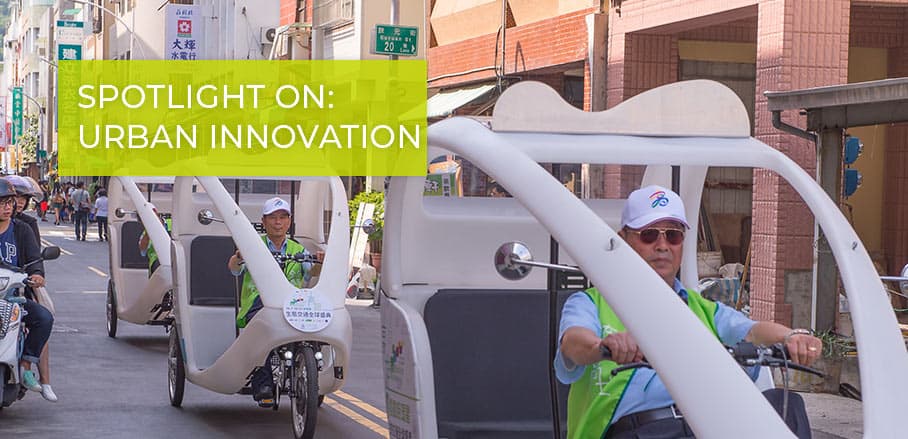Bringing About Sustainable Change: The EcoLogistics Principles
Urban freight has to become more sustainable. ICLEI’s EcoLogistics Community has developed eight principles to guide this process.
#StayAtHome has led to an increase in online shopping – and thus, delivery. While emphasised during the COVID-19 pandemic, the need to make urban freight more sustainable has been articulating itself for quite some time. ICLEI’s EcoLogistics Community has launched eight guiding principles to transform low-emission urban freight transport and provide guidance for local communities to develop more efficient goods distribution systems, a key component of sustainable urban transportation.
Freight transport forms the backbone of today’s economy. Globally, urban freight represents up to 25 per cent of urban vehicles, takes up to 40 per cent of motorised road space, and contributes to up to 40 per cent of urban transport-related CO2 emissions. Demand is rapidly growing and is estimated to triple between 2015 and 2050.
The growth in e-commerce has let many businesses grow but has also put enormous stress on existing infrastructures. Its demand and its dependency on urban infrastructure could most recently be seen during the COVID-19 outbreak, where contactless shopping became the new normal.
To mitigate adverse impacts and meet the Paris climate goals, it is imperative for cities to apply sustainable principles for moving goods. The EcoLogistics Community’s EcoLogistics Principles set out how cities can work together to address challenges posed by urban freight such as air pollution, carbon emissions, congestion, and road accidents, to ensure low emission solutions are sustained and enhanced over time, scaling up good practices.

© ICLEI – Local Governments for Sustainability (https://sustainablemobility.iclei.org/ecologistics-principles/)
During the recent Daring Cities virtual forum, ICLEI set out Eight EcoLogistics Principles. These principles, built by the EcoLogistics Community – the first city network globally committed to a sustainable urban freight future – promote clean, sustainable, efficient, and safe urban freight through collaborative efforts in stakeholder engagement, technologies, policies and land use planning and inspires local governments to transform their urban freight system.
The Community leads sustainable urban freight development in participating cities and drives global action on the international stage through collaborative exchange and action plans and stakeholder engagement. Being the current Chair of the Community for 2020-2021, Taoyuan City will be adopting the principles to sustainably transform its urban freight system.
